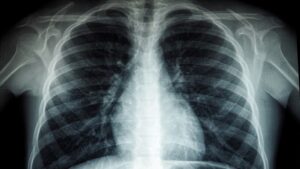[ad_1]
The world Health Organization (WHO) Director General Dr. Tedros Adhanom Ghebreyesus, ChineseHe said that they are concerned about the increasing Covid-19 cases in Turkey in recent months.
Speaking at the last press conference of 2022 at the organization’s Geneva headquarters, Ghebreyesus said that Covid-19, which has completed its 3rd year, monkeypox (Mpox) around the world, Ebola in Uganda, the cholera epidemic that continues to affect many countries, floods in Pakistan, drought in Africa and He talked about floods and other issues that negatively affect health.
Pointing out that he has many reasons to be hopeful for the future, Ghebreyesus said, “There has been a serious decrease in the Covid-19 epidemic this year. The global Mpox epidemic is decreasing and there has been no new Ebola case in Uganda for more than 3 weeks. In the early times of the Omicron wave, rapidly increasing cases “We are in a much better situation than a year ago when we faced deaths and deaths. After Covid-19 cases reached peak levels at the end of January, there was a 90 percent decrease in the number of deaths from Covid-19, which was announced weekly.” used the phrases.

THERE IS A LOT OF UNCERTAINTY AND GAP ABOUT COVID-19
Pointing out that there is too much uncertainty and space to say “the epidemic is over” yet, Ghebreyesus said that the gaps in surveillance, testing and sequencing mean that they do not sufficiently understand how the virus has changed.
Ghebreyesus said: “Gaps in vaccination mean that millions of people, especially healthcare workers and the elderly, are at risk of serious illness and death. Gaps in treatment are causing people to die needlessly. Gaps in the health system are making it difficult to cope with the rise in Covid-19, flu and other diseases. causing it.” he said.
Regarding the Covid-19 cases, which have increased again in China in recent months, Ghebreyesus said, “As WHO, we are concerned about the increasing cases of this serious disease.” said.
Ghebreyesus reiterated his call for the Chinese government to “share data and continue research on cases” so that a comprehensive assessment of the current situation can be made.

MEASURES TO BE TAKEN AGAINST FUTURE OUTLOOKS
WHO Director-General Ghebreyesus pointed out that in 2022, WHO took important steps to prevent new epidemics and to fight better, “We have created a new Epidemic Fund. In addition, we have built an mRNA Technology Transfer Center in South Africa to enable low-income countries to produce vaccines with mRNA technology.” he said.
Reminding that the world is struggling with various epidemics as well as Covid-19 this year, Ghebreyesus said the following about the monkeypox (Mpox) virus:
“In July I declared Mpox an International Public Health Emergency of Concern (PHEIC). There have been 83,000 cases and 66 deaths from 110 countries so far. Just like Covid-19, Mpox cases have decreased by 90 percent since the day it peaked. I am hopeful that if the current trend continues, we will stop describing Mpox as an emergency next year.”

EBOLA IN UGANDA MAY END ON JANUARY 11
Announcing that the Ebola virus, which has re-emerged in Uganda, has also been brought under control, Ghebreyesus said, “No new cases have been seen since November 27. If no cases emerge, we will announce the end of the epidemic as of January 11.” used the phrase.
Ghebreyesus noted that the fight against the cholera epidemic continues in 30 countries and stated that this year, 310 deaths occurred due to cholera in Haiti, where the epidemic has had the most impact and no cases have been seen in the last 3 years.
Emphasizing that they will continue to provide health equipment and vaccine aid to Haiti, Ghebreyesus informed that they sent 1.2 million doses of orally taken cholera vaccine to the region last week.
Ghebreyesus said that according to WHO’s data, over 1000 attacks were carried out on health facilities in 16 countries in 2022, and 220 people lost their lives in these attacks.
[ad_2]
Source link






